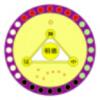Search the Community
Showing results for tags 'Occult Philosophy'.
Found 1 result
-

Agrippa and Aristotle: the Aristotelian background of the Occult Philosophy
Zhongyongdaoist posted a topic in Agrippa Textual Study
For some time I have been asking myself how best I can further the topic of the study of Agrippa, and the conclusion that I came to was to clarify the relationship between Agrippa's Occult Philosophy and the Philosophy of Aristotle. It is simply not possible to get a good understanding of Agrippa without an appreciation of Aristotle, in particular his doctrine of the “Four Causes”. Other aspects of Aristotelian thinking are important also, but it starts with these “Four Causes”. In the modern world the basic tendency is a viewpoint created in the Seventeenth Century in which the basic categories are mind and matter and objective and subjective. If you watch the discussions here on the Tao Bums and elsewhere you will see these terms bandied about with little attempt to understand them, but with a great deal argued from them. I will deal with them and their effects on the Modern Mentality in a series on Agrippa and the Scientific Revolution, but for now the most important thing is to understand what those Revolutionaries found so revolting about the worldview Circa 1500 and what about it may have been worth preserving or reviving as part of our understanding of Traditional Magic and its application to modern magic. This is the beginning of the Wikipedia article on the Four Causes: The further discussion in the article is also worthwhile. This is a fair first step, but in order to understand its application to Agrippa and to other aspects of the Occult Philosophy of his age we will have to dig deeper. That is the intent of this thread and I will examine all of these in more detail and their relationship to other aspects of Aristotle's thinking and then their applicablity to understanding how and why Agrippa thought magic and by extension alchemy and other “esoteric” arts should be practiced. As I develop this thread I will expand on the above, examine them for their applicability to understanding Agrippa, how to understand modern magic in these terms, why they are relevant to an understanding of modern science and how they can reconcile science and magic, and extend magical theory and practice. Questions and comments are welcome and I will answer them according to relevance and as time permits, in some cases putting an answer off until more groundwork has been laid, even to the extent of answering it in another thread, such as the one I am thinking about the Scientific Revolution.- 20 replies
-
- 9
-

-
- Cornelius Agrippa
- Occult Philosophy
- (and 5 more)
